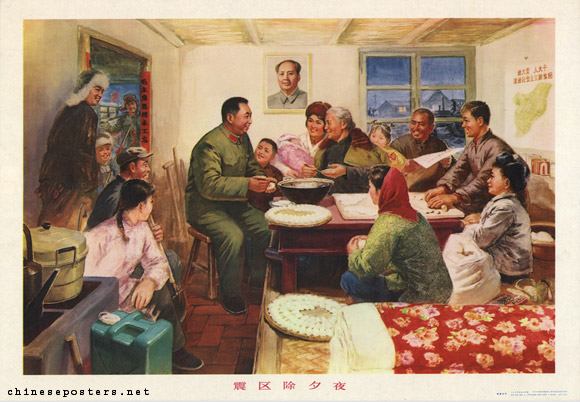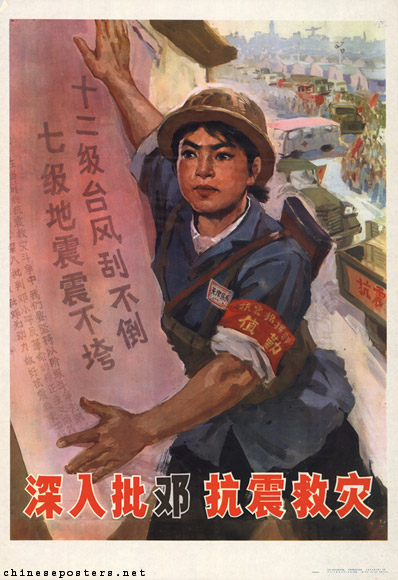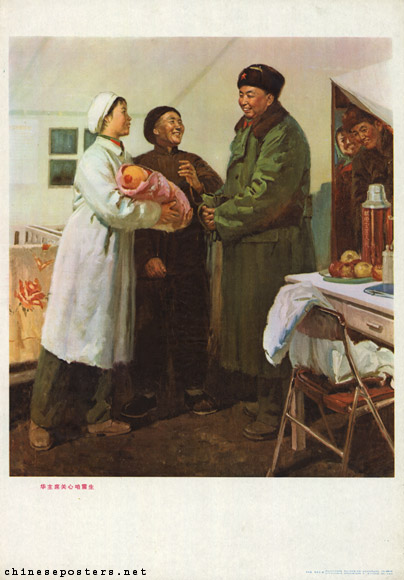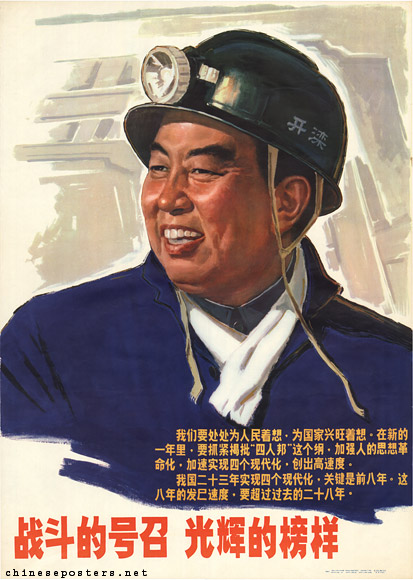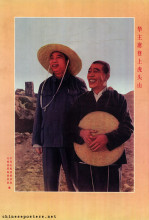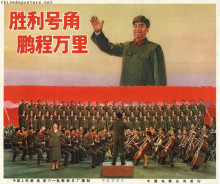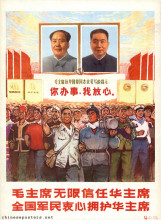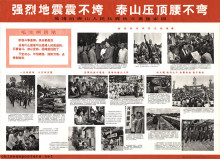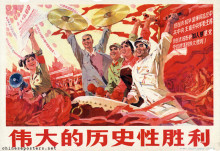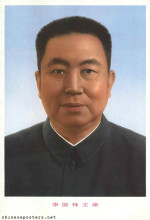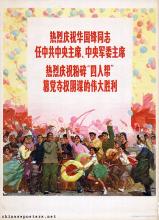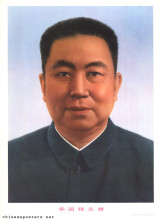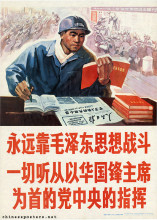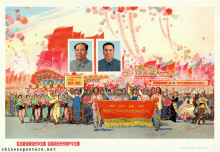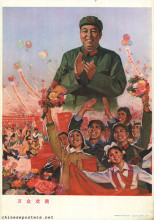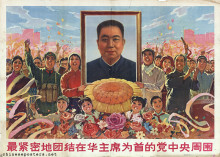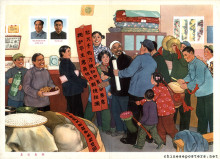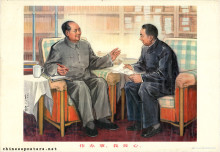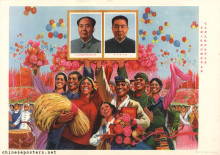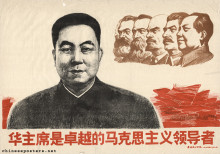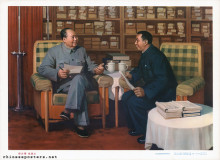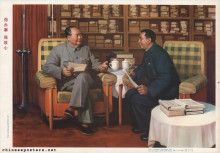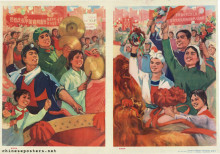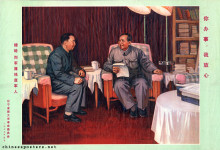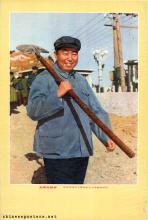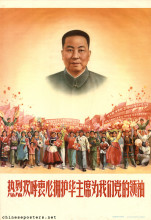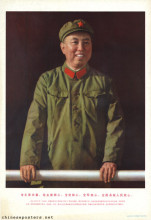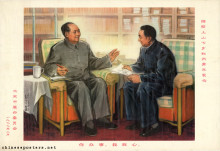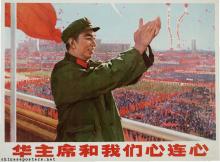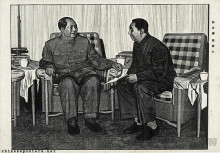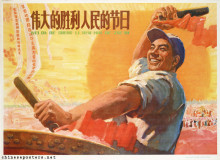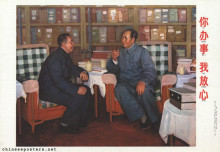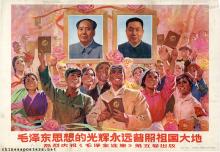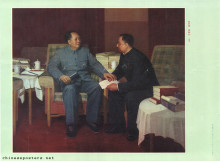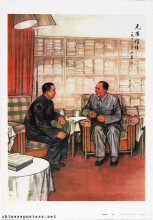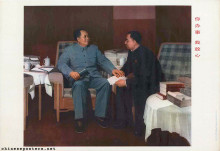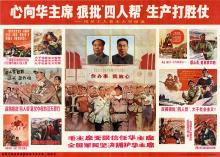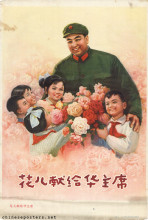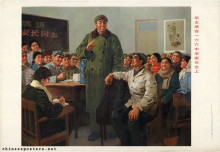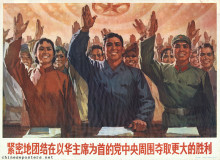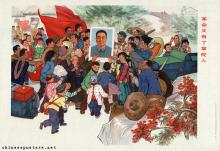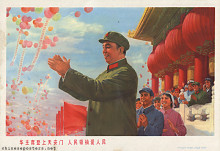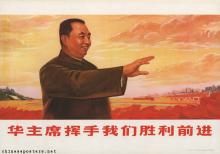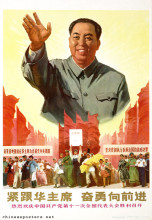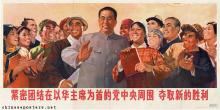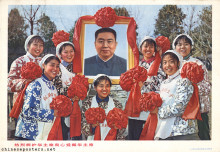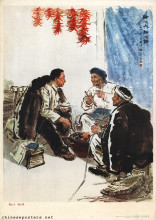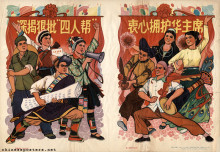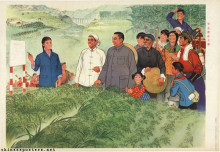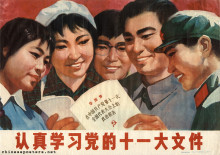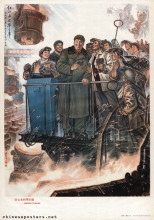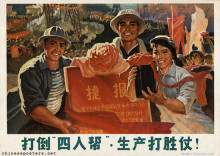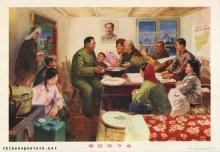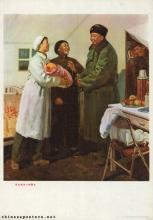New Year’s Eve in the earthquake area, 1977
When a magnitude 7.8 earthquake devastated the city of Tangshan (唐山) on 28 July 1976, many ordinary Chinese were convinced that important developments were about to take place. That Mao Zedong died less than two months later came as no surprise to them. The ensuing relief operation became entangled in the political struggles at the time, giving Jiang Qing and the Gang of Four the opportunity to accuse Deng Xiaoping, who was at the center of a campaign to combat rightist deviation, of sabotaging the relief efforts.
Deepen the criticism of Deng’s earthquake relief work, 1976
To show the Party’s concern after an earthquake, mass mobilization campaigns usually were set in motion to distribute relief and emergency supplies. The People’s Liberation Army in particular played a major role in this. The leadership would send messages of sympathy and dispatch delegations to express concern. In serious cases, the highest leaders would visit the stricken area. It is not surprising that Hua Guofeng grasped this opportunity when he went to Tangshan on 4 August, accompanied by Chen Yonggui. It enabled him to not only present himself, but also to show that he was a true successor to Mao, showing his concern with the victims. His personal handling of the massive relief operation was superb by all accounts, and this won him considerable prestige among the leaders.
Chairman Hua expresses concern for our baby born during the earthquake, 1977
Women zhongxin aidai yingming lingxiu Hua zhuxi [We wholeheartedly love and esteem wise leader Chairman Hua] (Beijing: Renmin chubanshe, 1977) [in Chinese]
John Gardner, Chinese Politics and the Succession to Mao (London: The Macmillan Press Ltd, 1982)
Hua zhuxi he Tangshan renmin xinlianxin bianji xiaozu (ed.), Hua zhuxi he Tangshan renmin xinlianxin [The hearts of Chairman Hua and the people of Tangshan beat as one] (Beijing: Renmin meishu chubanshe, 1978) [in Chinese]
James Palmer, The Death of Mao. The Tangshan Earthquake and the Birth of the New China (London: Faber and Faber, 2012)
